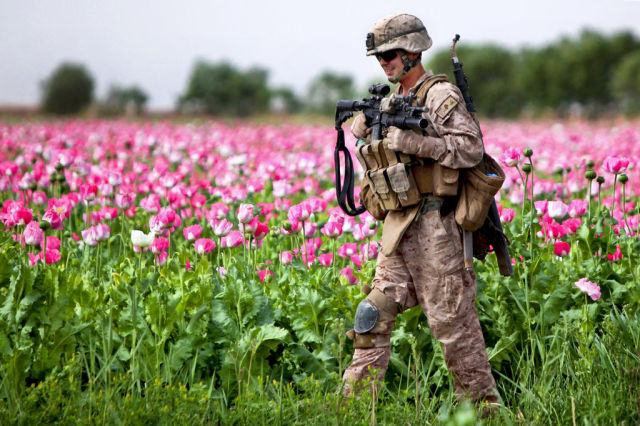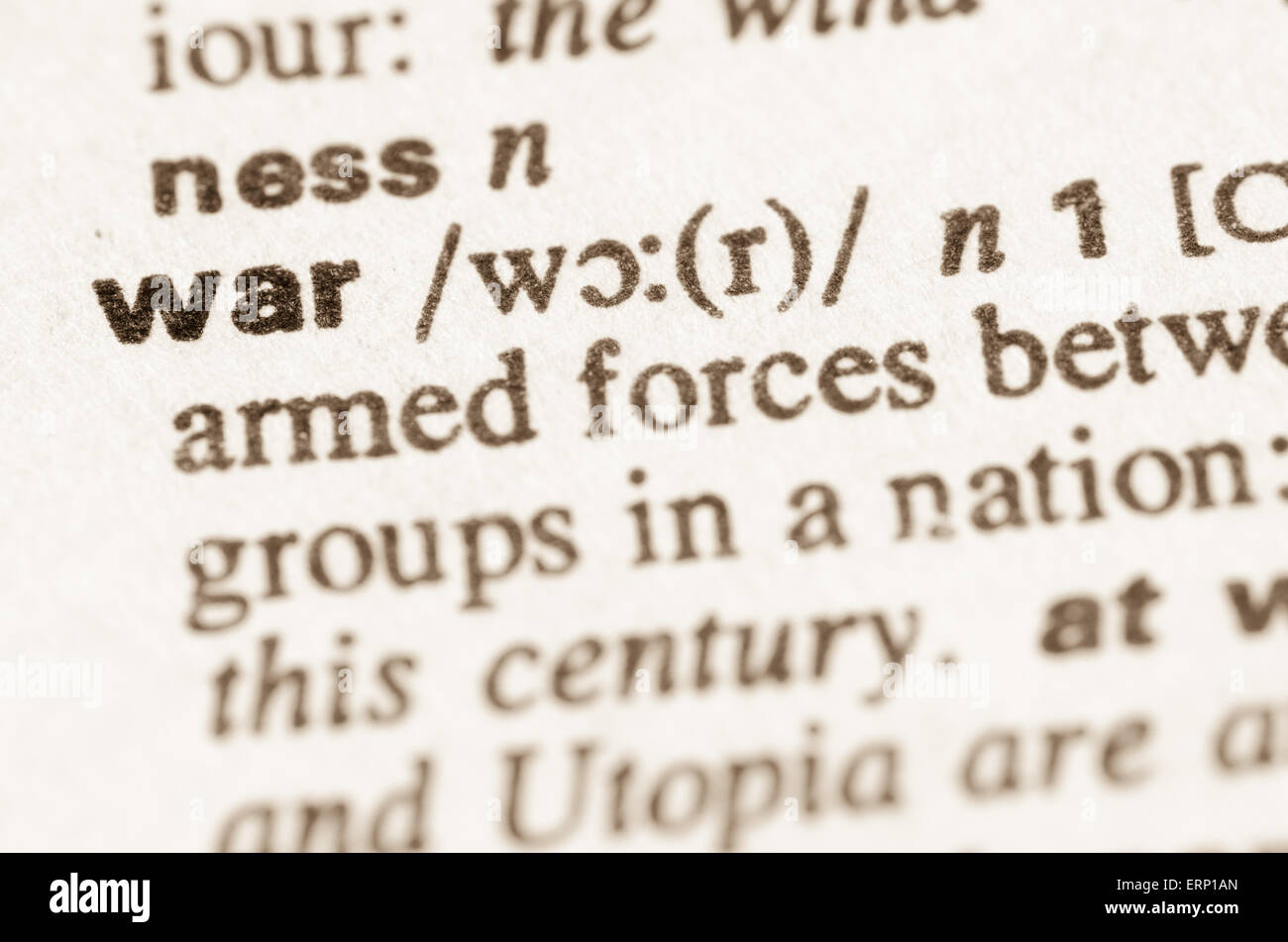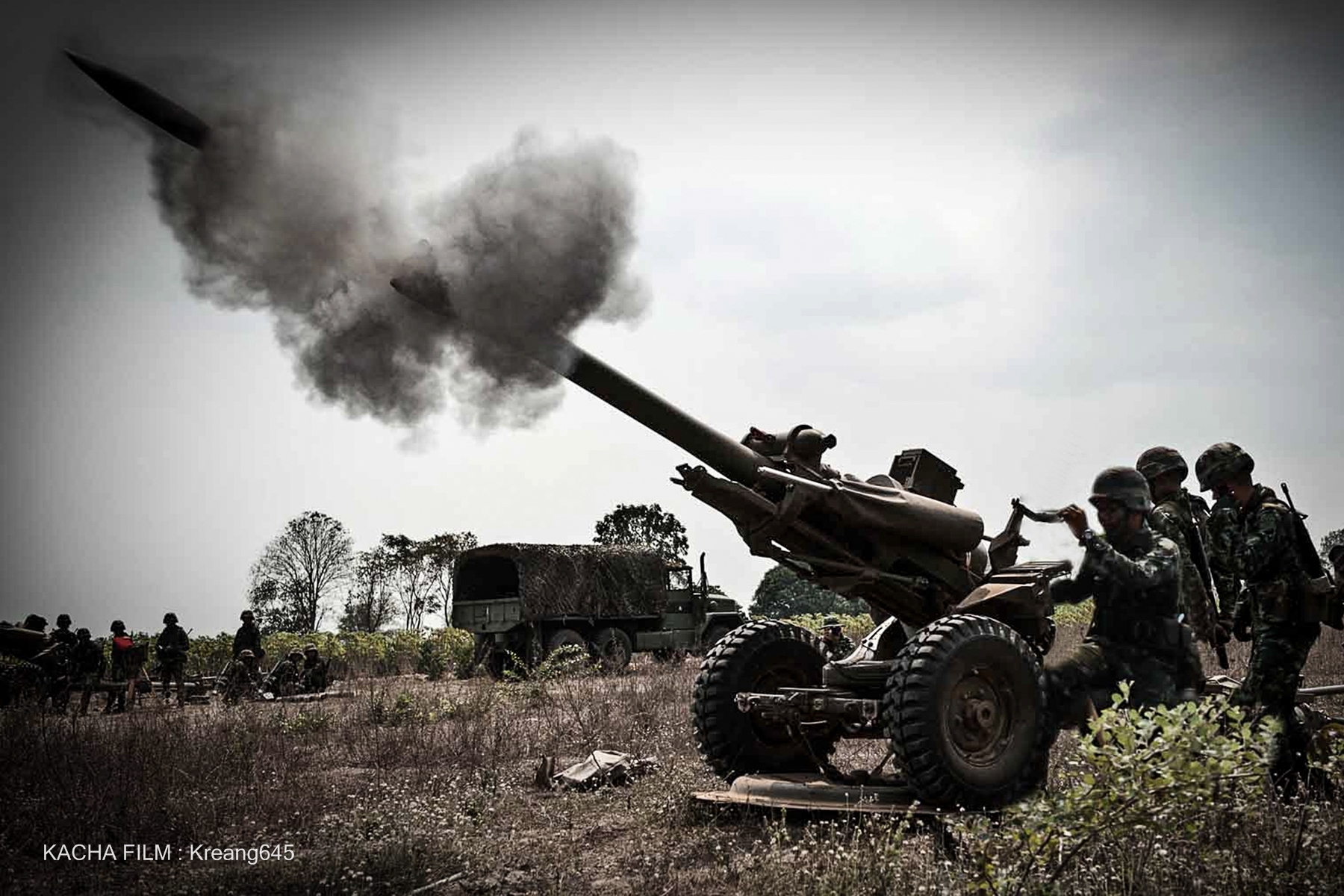Military Action Definition - The US military uses many unique elements and concepts that civilians are not exposed to. Because of this, and because of the need for quick and clear communication, the members are immersed in a linguistic world separate from the everyday life of a civilian.
Some are obvious and some are completely mysterious, but each has a special and important meaning (sometimes). The act did not prevent subsequent presidents from taking military action. For example, in 1990, President George H. w.
Military Action Definition
 Source: www.history.com
Source: www.history.com
Bush sent troops to Saudi Arabia in response to Iraq's invasion of Kuwait. In 2002, when war with Iraq was imminent, President George W. Bush proposed a resolution that would have allowed him to declare war at a time of his choosing without first consulting Congress.
Legally Defining War
Congress passed the authorization in 2002, and President Bush declared war on Iraq in March 2003. Soup Sandwich: Used to describe an individual, object, situation, or mission that has gone terribly wrong. The essence of the term's meaning comes from the fact that it is incredibly difficult, some would say impossible, to make a soup sandwich.
Recommended by David E Windsor II. The jurisdiction of the federal government for the conduct of war extends to all matters and activities affecting its conduct and progress. The military forces encompass all phases of national defense, including the mobilization and use of all the nation's resources and the protection of war materiel.
Most of these powers have not been used since World War II because the United States did not go to war after declaring war while engaged in conflicts in Korea, Vietnam, and the Persian Gulf. There is a very fine line here that separates intended self-defense, which may be legally permissible, from retaliatory measures, whose primary purpose is to punish alleged wrongdoing, and which are not legally permissible.
Israel's destruction of 13 civilian aircraft in Beirut, Lebanon in 1968 was condemned by the UN Security Council as retaliation, as the attack was in retaliation for an attack on an aircraft of Israeli line in Athens, in which an Israeli citizen died.
War Powers Of The Us Government
(Since the Security Council is not a court, it does not automatically follow that its condemnation of military action implies its illegality.) In the early months of US involvement in World War II, President Franklin D. Roosevelt ordered the removal of people of Japanese ancestry from the West Coast.
 Source: cdn.britannica.com
Source: cdn.britannica.com
At the time, the action was justified on national security grounds, as military commanders believed that California was vulnerable to Japanese spies and saboteurs. The United States Supreme Court, in Korematsu v. United States, 323 U.S.
214, 65 S.Ct. 193, 89 L. ed. 194 (1944), upheld the impeachment. Thousands of Japanese Americans lost their properties and businesses and were "relocated" to concentration camps during the war. In time of war, the American government may properly demand the services of all its citizens and subjects.
It can recall citizens who are abroad and punish them if they disobey. The government may take such measures as it deems necessary for national security against hostile aliens. Enemy aliens residing in the United States at the outbreak of declared war or entering the United States during the war are properly arrested, detained, interned, or deported.
Status And Rights Of Citizens
Pogey Bait - Snacks. A "pogue" is an individual who does not serve on the front line and performs non-combat-oriented roles. "Pogey bait" is then a bribe given to these people in exchange for fast or high quality services.
All content on this website, including dictionary, thesaurus, literature, geography and other reference data, is for informational purposes only. This information should not be considered complete, up-to-date and is not intended to be used as a substitute for the visit, consultation or advice of a legal, medical or other professional.
Big Mistakes: The name sailors gave the Great Lakes Naval Training Center north of Chicago. He cites the closing of two other practice facilities in San Diego and Orlando, which have much nicer climates. Weapons of Mass Destruction: Weapons capable of causing destruction or death beyond the capability of conventional weapons.
They are usually nuclear, biological, chemical, radiological or high explosive in nature. This definition does not include a vehicle or mode of transportation for the delivery of weapons. Gedunk: Refers to snacks such as candy and chips, as well as the place where they are sold.
 Source: media.npr.org
Source: media.npr.org
Executive Military Power
It is associated with the Navy and can be used in the phrase "gedunk sailor" as a derogatory remark for inexperienced sailors. Recommended by bensonmccloud. A person whose private property is confiscated is entitled to just compensation.
However, the compensation shall not be paid in advance or at the time of confiscation of the property. Once compensation is paid, the owner is entitled to receive the fair value of the property. The market value of the seized goods is usually used as a measure of fair compensation.
Bitchin' Betty : Most US military aircraft have warning systems that often use female voices. The phrase comes from the same anthropomorphization used for car GPS units, except that Bitchin' Betty alerts drivers to life-threatening situations.
Tango Uniform: Slang for "raised breasts", which is the position in which corpses are usually turned. The term can be applied to both dead and broken pieces of equipment. Recommended by users 10741875 and iaff. This presidential power is exemplified by the actions of President Abraham Lincoln at the start of the Civil War.
Interested In Joining The Military?
During the ten weeks between the fall of Fort Sumter and the convening of Congress in July 1861, Lincoln made preparations for war based on his authority as commander-in-chief. He began the conscription of men for military service, authorized a blockade of the Southern Navy, and temporarily revoked the writ of Habeas Corpus.
Congress later ratified most of Lincoln's acts. In 1974, General Assembly Resolution 3314 defined and provided some examples of aggression. Article 3 lists as examples an invasion or attack by the armed forces of a country, a military occupation, the bombardment of the territory of another country, the blockade of ports or coasts, the act of a country which
allows the use of its territory for the preparation of an act of aggression against a third country and the sending of armed groups, irregular forces or mercenaries to carry out acts of armed force against another country.
 Source: img.izismile.com
Source: img.izismile.com
Other resolutions of the General Assembly, in particular Resolution 2625 of 1970 (Declaration on Principles of International Law Relating to Friendly Relations and Cooperation among States in Accordance with the Charter of the United Nations), emphasize the prohibition of the
Enemy Intercourse
'use of force in article 2 (4). A military commander may seize or requisition a citizen's property for public use or to prevent it from falling into the hands of the enemy. However, the commander may only do so in situations of immediate and imminent danger or urgency.
The services and output of a business organization, such as a shipping company, can be properly claimed. Shavetail - Term referring to second lieutenants in the US Army. It primarily refers to deductions received at officer candidate school.
The origin of the term dates back to the time when the military used pack animals and handlers of newly broken animals would shave their tails to distinguish them from more experienced ones. Comics: A term used to describe maps presented by military intelligence.
The term is rather derogatory in nature as it contradicts the accuracy of the maps. It also refers to the brightly colored designs and symbols that are commonly included. In response, Congress passed the War Powers Resolution of 1973 (50 U.S.C.A. § 1541 et seq.), which limited the president's authority to mobilize the military during undeclared war.
In the event of a national emergency, the law allows the president to deploy troops without consulting Congress. However, the president must notify Congress within 48 hours, and the amount of time troops can deploy to a foreign location is limited.
The law also provides for a veto mechanism that allows Congress to force the withdrawal of troops at any time. Civil liberties can be curtailed even during war. The government can censor news that affects national security, such as reports of troop movements.
 Source: c8.alamy.com
Source: c8.alamy.com
It is up to Congress to enact sedition laws that prohibit political speech that interferes with the war effort or provides aid and comfort to the enemy. Article I, Section 8, Clause 11 of the US Constitution only gives Congress the power to declare war.
Furthermore, Congress is constitutionally empowered to "raise and maintain armies" and to "provide for the raising of militia to enforce the laws of the Union, suppress rebellions, and repel invasions." The US Constitution also defines the military powers of the President of the United States: he or she serves as the Commander-in-Chief of the US Armed Forces.
Throughout the history of the United States, however, there have been conflicts between the two branches (legislative and executive) over who has the greatest military power. And often, regardless of constitutional law, the executive power of government persists.
Soap Tokens: A psychological operations (PSYOPS) tactic in which fake letters of the enemy's country of origin are written on corpses and battle debris. They include sentimental content, hint at the infidelity of loved ones at home and are intended to demoralize fighters.
All content on this website, including dictionary, thesaurus, literature, geography and other reference data, is for informational purposes only. This information should not be considered complete, up-to-date and is not intended to be used as a substitute for the visit, consultation or advice of a legal, medical or other professional.
Congress can control the food supply in wartime to ensure that military and civilian needs are met. Other materials may also be restricted, including gasoline. Congress can also regulate and control prices as an emergency war measure to prevent inflation.
Price control aims to stabilize economic conditions, prevent speculative and abnormal price increases, increase production and ensure a sufficient supply of goods at fair prices. The federal government can also impose rent controls on housing. During the 20th century, several US presidents deployed the US armed forces without declaring war.
 Source: armyprcenter.com
Source: armyprcenter.com
In 1903 and 1904, President Theodore Roosevelt took military action in Panama and the Dominican Republic without consulting Congress. President Woodrow Wilson sent troops into Mexico without congressional approval. But the most serious violations began in 1951, when President Harry S. Truman ordered troops into Korea as part of a United Nations "police operation."
This was followed in the 1960s and 1970s by the Vietnam War, which President Lyndon b. johnson and richard m. Nixon impeached without congressional declaration. Grape: a term with two meanings; one for the Air Force and one for the Navy.
Navy Grape is a person who supplies fuel to airplanes. The Air Force Grape, on the other hand, refers to an easy task and can be used as a compliment when a service member makes something look easy.
According to Article 39 of the Charter, the UN Security Council is authorized to determine the existence of any threat to the peace, breach of the peace or act of aggression. It can make recommendations or decide what action (including the use of armed force) will be taken.
In practice, the Security Council is often unable to act because of the veto power held by its permanent members (the United States, the United Kingdom, the Soviet Union, France, and China), and it cannot act through
use of armed force because none of the agreements between individual states and the UN, provided for by the Constitution, were ever concluded. All content on this website, including dictionary, thesaurus, literature, geography and other reference data, is for informational purposes only.
This information should not be considered complete, up-to-date and is not intended to be used as a substitute for the visit, consultation or advice of a legal, medical or other professional. It may be that any use of armed force outside the territory of a State is a violation of Article 2(4) of the Charter of the United Nations and that the term force as used here also implies aggression.
Therefore, any country that uses force will have to demonstrate that it is not doing so out of aggression, but in self-defense. We can connect you with recruits from various military branches. Learn about the benefits of serving your country, paying for college, military careers and more – apply now and speak with a recruiter near you.
It is a general rule that during declared war all intercourse, correspondence, and traffic between citizens of the United States and subjects of hostile countries, which may benefit or afford comfort to the enemy, is prohibited.
For example, it is illegal to transfer money across enemy lines. Also, a citizen of the United States cannot legally sign a treaty with a citizen of an enemy country while war exists, and therefore any treaty is void.
The laws of war prohibit all trade with the enemy and all other commercial intercourse while the state of war exists.
military action synonym, army course of action, course of action examples military, army course of action examples, unified action definition military, army terms and acronyms, army definitions and terms, course of action definition